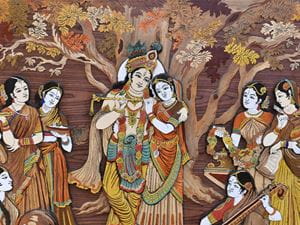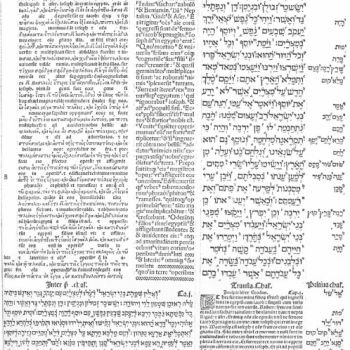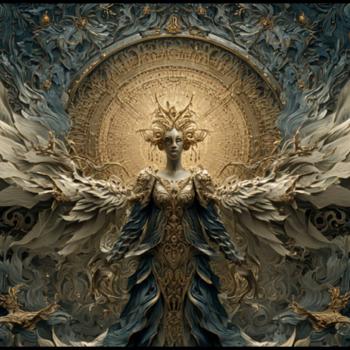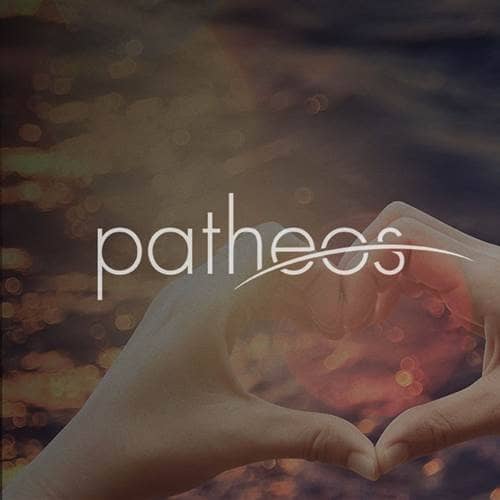
Hinduism is an ancient religion that recognizes a vast diversity of Hindu gods and goddesses while also believing that a divine principle or essence runs through all things. Most Hindu scriptures, especially The Vedas, that talk about the origins of existence begin with Brahman, who is the divine life source, universal reality itself pervading all things. Brahman is the cosmic principle of life and existence. Before Brahman, there was nothing, and from Brahman comes the existence of all Hindu gods and goddesses.
While some say that there are over 300 million different Hindu gods and goddesses, there are three central divinities that garner the most devotion: Brahma, Vishnu, and Shiva. These three are sometimes referred to as the Hindu trinity, or trimurti. Some others argue that in truth Hinduism is monotheistic—that there is only one god and all these millions of other deities are merely manifestations of the one. Those Hindus who believe that all the gods and goddesses are manifestations of one see them as expressions of Brahman, pure divine essence.
Brahma is called the god of creation. When Vishnu first appeared, a lotus grew out of his belly, and in the lotus was Brahma. Vishnu instructed Brahma to create, and, using the lotus, Brahma created the skies and stars and earth, and then populated earth with all creatures.
Vishnu is called the preserver god, the one who stabilizes the world and protects it from chaos. In the Puranas, another body of Hindu sacred texts, Vishnu is deeply involved with the human world and has many different incarnations called avatars. Krishna and Rama are two of the most well-known, but some Vishnu devotees believe that Gautama Buddha was also an avatar of Vishnu.
Shiva is known as the destroyer, the one who demolishes creation at the end of every cosmic cycle thus allowing for a new creation to arise. These deities also have consorts, goddess wives, who have their own powers and devotees. One of Shiva’s consorts, Parvati, bore him a son who, after some misadventures, was given an elephant’s head, thus becoming the elephant-headed god Ganesha, popular among many Hindus.
Each of these gods can also take many different forms. Families can choose a particular god, an Ishta Devata, for their family’s spiritual practices. Local or regional pieties can have specific adaptations or manifestations of a god. Hinduism can thus be divided into major sects according to the devotees of each of these gods.
Hinduism, then, is a broad umbrella of religious beliefs with a dizzying diversity of traditions and practices. Many overlap, but there is no single system of beliefs or practices that can define Hindu devotion or theology. The different traditions, however, all share a similar worldview, one that accepts an endless cycle of rebirth (samsara), that operates within an inescapable law of cause and effect (karma), and that believes individual thoughts and actions determine present existence and all future rebirths. They also all anticipate an ultimate escape from samsara and the absorption of the self, the atman, into its source, Brahman.
3/23/2021 6:32:41 PM









